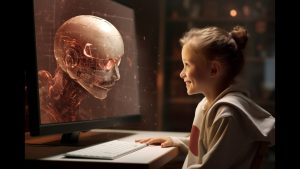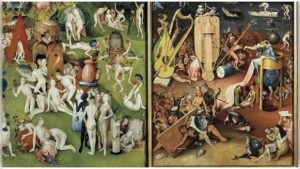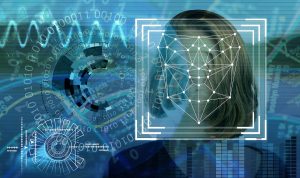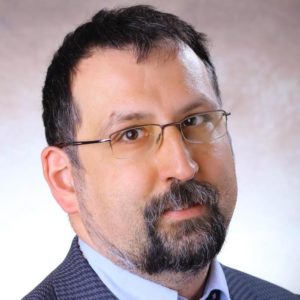We are living in the era of the fourth industrial revolution, where cyberspace dominated by computer systems and omnipotent online communication platforms unprecedentedly shape our everyday lives. It is no longer a frivolous, science fiction-like question whether digital applications ranging from communication to medical and military sciences, along with artificial machine intelligence, can disrupt established religions and transcendental dimensions, or usher in a peculiar new era of cyber religions based on fetishism of machine technologies.
The somewhat ominous saying associated with John von Neumann, one of the world-renowned pioneers in computer science and artificial intelligence research, dates back to the 1950s. According to him, once the level of development of artificial or machine intelligence reaches the complexity of the human mind, the so-called singularity will occur, and human history, as we know it, may come to an end. Neumann likely did not refer to the uprising of smart, malicious machines and SkyNet’s killer robots known from Terminator but rather to an entirely new, unknown chapter in history. It is a time when humanity, essentially playing the role of a creator, may bring forth something that could surpass even its creator and easily lose control over it.
The topic has been engaging not only IT professionals but also futurists, religious scholars, and social scientists for decades, as the increasingly potent challenges of the cyber world leave no science field or social segment untouched. The Singularity University in Silicon Valley, California, is one of the primary scientific institutions dedicated to research on this subject. This unique institution was founded in 2008 by none other than Ray Kurzweil, the former chief technology officer of Google and one of the top researchers on the topic, who has been managing the research university ever since.
Many analyses and treatises have already been published worldwide on the various social, cultural, socio-political or military aspects of the development trends of artificial intelligence, including the pioneering work and relevant ideas of Martin Ford, Rand Waltzman, Klaus Schwab, Stephen Hawking, Yuwal Harari, and Elon Musk. However, there have been fewer analyses and studies on the potential religious implications and influences of the novel challenges in cyberspace and AI. Nonetheless, some related investigations and scientific shifts have occurred, such as Monika Andok’s peculiarly themed book titled Digital Religion. In this work, she discusses the effects of the digital transition during the global coronavirus pandemic on the transformation of religious practices and beliefs in both domestic and foreign environments.
The interesting topic did not escape the attention of the editors of the global mainstream media, and BBC Tech published a video report ‘God and the robots‘ last fall that covered this divisive and, for many, scandalous topic, and it stirred up quite a controversy. The report attempted to explore the divisive and provocative topic of whether intelligent machines capable of autonomous decision-making, humanoid robots (cyborgs, androids), could help the development of human religious beliefs in the near future. In extreme cases, could they even replace clergy members and assist believers on the path of seeking God?
Various religious personalities interviewed in the report, from Buddhist monks in the Far East and priests and vicars of Polish Catholic and Anglican parishes to rabbis of American Israelite congregations, expressed the view that soulless intelligent robots could, to some extent, assist believers in practicing their faith. However, they vehemently stated that these machines could never replace God’s creations, the ordained priests, in conducting religious ceremonies, liturgies, and especially in administering sacraments. Interestingly, Buddhist monks believed that even intelligent machines could lead human believers to the experience of transcendence, the experience of closeness to God. However, this quasi “transhuman human-machine-god” trinity remains an entirely unexplored dimension in all respects. Nevertheless, one of the globally recognized pioneers of so-called human-machine transhumanism, Elon Musk, attracted attention in 2016 with the shocking statement that, in his opinion, the transformation and merging of humans and machines is only a matter of time (expected in decades). Additionally, he suggested the primacy of the cyber dimension as a kind of matrix-like virtual reality encompassed by a peculiar human-machine created metaverse. Shortly after Musk’s statement, in 2018, Hungarian Christian intellectuals, Protestant churches, and Jesuit leaders discussed topics related to these developments, such as the self-awareness of AI, anticipating possible scenarios and eventualities in the dimension of increasing cyber threats and potential AI challenges in the future.
For representatives of a classical conservative worldview or advocates of transcendental and declared religions, the prospect of a cyber-religious dimension involving human-machine hybrid pairs in the future seem quite frightening and should be rejected. If these experimental, semi-scientific trends materialize, and especially if the controversial “cyber-spiritual” state is achieved, the consequences for the future of human society and its existence could be unpredictable.
Nearly a century ago, C.S. Lewis, who transformed from an atheist into a deeply religious Christian philosopher, wrote, inspired by the Catholic thinker G.K. Chesterton, that humanity’s unrestrained struggle against Nature to be conquered equates to open rebellion against the divine plan and a flawed attempt to create a human-God, and it is destined for failure. This statement may be particularly true in the world of hybrid life forms emerging from the symbiosis of humans and machines, in the transhuman dimension unfolding at the dawn of “cyber religions” around 2045 when AI is expected to become “self-aware” and “singularity” occurs, with all its currently unimaginable consequences.






